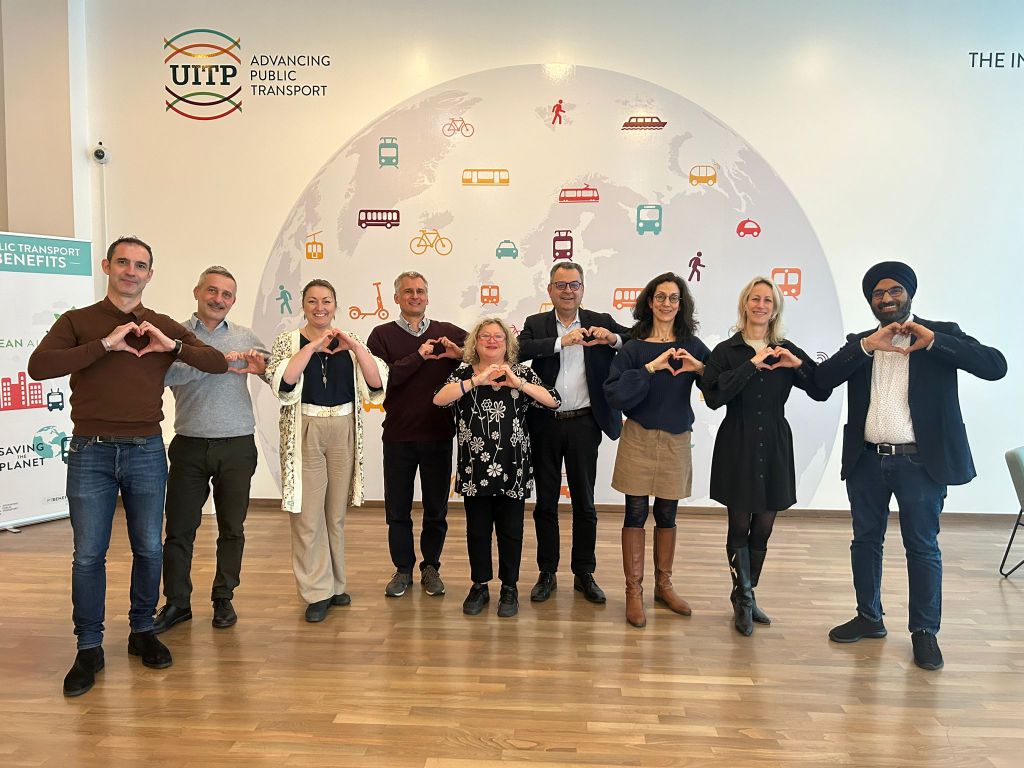
Shaping the digital transformation in public transport: UITP and ETF's joint recommendations towards a just transition
UITP and ETF have joined forces to study the impact of digitalisation on employment and working conditions in urban public transport
The digital transformation of the urban public transport sector is an on-going process and the COVID-19 pandemic has only accelerated this trend.
These developments can be noticed in all aspects, from infrastructure and vehicles to customer relations, the development of new digital-based services and business areas, and impacts towards working conditions for the employees. Both UITP and the European Transport Workers’ Federation (ETF), the social partners in urban public transport, recognise that the use of new digital technologies can strengthen the position of public transport as the backbone of urban mobility and make public transport fit for the future in line with the European Green Deal.
Back in October 2020, UITP and ETF published joint recommendations on the Report, ‘Digital transformation and social dialogue in public transport‘ which analysed the impact of digital transformation on jobs, working conditions and competences in the urban public transport sector. Now, the two organisations have adopted joint recommendations on digital transformation and social dialogue in urban public transport in Europe.
What are the key recommendations?
Digital change has a huge disruptive impact on companies and represents an opportunity to reposition the business by providing high-quality mobility to better serve passengers. This change process has also a significant effect on the workforce impacting employment, working conditions and skills required. With the adoption of joint recommendations, the objective is to ensure that the digital transformation will benefit both the experience of passengers and working conditions for employees.
To seize the many opportunities provided by digitalisation, it is of utmost importance to anticipate potential change and introduction of new technologies, as well as involve all partners to contribute shaping this digital future.
This process must be inclusive and participatory from the very beginning to better anticipate, prepare and manage digital transformation. It should guarantee a just transition and make sure that nobody is left behind. The employees have the right to privacy and the collection of data and the use of surveillance systems, such as cameras inside stations and vehicles, must be fully transparent.
Digitalisation offers opportunities to shape the future of urban mobility by better responding to customer expectations. These developments have however also a significant impact on employment, skill and competence needs and working conditions. With our joint recommendations, we assess these impacts and address key principles to ensure that the introduction of digital technologies will make public transport fit for the future and, at the same time, improve working conditions for employees.
Read the joint recommendations - available in several languages
Are you an employer and wondering how to better manage your workforce digitally and from a distance during the pandemic? Check out our Knowledge Brief ‘How to manage the workforce during COVID‘ which is packed full of practical recommendations for the sector!
Learn more about the potential of innovation and what data-driven solutions can mean for public transport in our upcoming Leaders in Urban Transport Council webinar, jointly hosted with Moscow Transport.
exclusive resources









